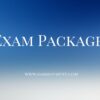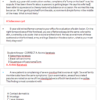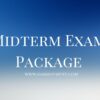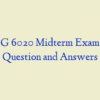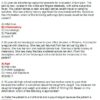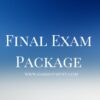Description
NSG 6020 Week 2 Quiz Answers
- Which of the following percussion notes would you obtain over the gastric bubble?
- Which of the following anatomic landmark associations is correct?
- A mother brings her infant to you because of a “rattle” in his chest with breathing. Which of the following would you hear if there is a problem in the upper airway?
- Which of the following is consistent with good percussion technique?
- On examination of a young child you notice that he or she has a noisy breathing, barking, “seal-like” cough. What would your diagnosis be? nsg 6020 week 2 quiz
- A patient complains of shortness of breath for the past few days. On examination, you note late inspiratory crackles in the lower third of the chest that were not present a week ago. What is the most likely explanation for these?
- Which of the following conditions would produce a hyperresonant percussion note?
- Which lung sound possesses the characteristics of being louder and higher in pitch, with a short silence between inspiration and expiration and with expiration being longer than inspiration? nsg 6020 week 2 quiz
- A sixty-year-old baker presents to your clinic, complaining of increasing shortness of breath and nonproductive cough over the last month. She feels like she can’t do as much activity as she used to do without becoming tired. She-even has to sleep upright in her recliner at night to be able to breathe comfortably. She denies any chest pain, nausea, or sweating. Her past medical history is significant for high blood pressure and coronary artery disease. She-had a hysterectomy in her 40s for heavy vaginal bleeding. She is married and is retiring from the local bakery soon. She denies any tobacco, alcohol, or drug use. Her mother died of a stroke, and her father died from prostate cancer. She denies any recent upper respiratory illness, and she has had no other symptoms. On examination, she is in no acute distress. Her blood pressure is 160/100, and her pulse is 100. She is afebrile, and her respiratory rate is 16. With auscultation, she has distant air sounds and she has late inspiratory crackles in both lower lobes. On cardiac examination, the S1 and S2 are distant and an S3 is heard over the apex.
- When crackles, wheezes, or rhonchi clear with a cough, which of the following is a likely etiology?

